Scientific Coordinator
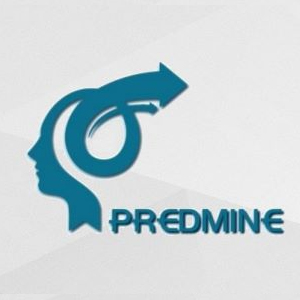
Short Description
In the course of the operational programme «Competitiveness and Entrepreneurship», carried out under the auspices of the General Secretariat for Research and Technology of the Ministry of Education and Religious Affairs, the National University of Athens participated in the elaboration of the project “Development of Interface of Predictive Analysis Platform Using Live Big Data” with the acronym “PREDMINE”.

The platform was implemented for use in the field of insurance risk management, takes advantage of the benefits of predictive analysis, text mining and big data processing from insurance companies or from open data online, aimed at accident prediction and proper pricing / preparation of insurance contract. At the same time, new methods and data classif
ication approaches are developed, along with pattern identification, risk assessment and prediction of the driver’s behavior.With the development of this platform, complex processes are simplified, resulting in the ability of the insurance companies to gain key competitive advantage (see. operating costs related to the customer base, market position, etc.) without any prerequisite specialized knowledge, as the platform runs as a fully automated system. More precisely, the platform enables the insurance sector companies to create predictive models and use them in order to process large amounts of data with ease and precision.
The final product is a comprehensive predictive analytics solution that supports advanced machine learning algorithms and classification based on existing open source libraries, such as «Apache», «Mahout» and «R», automatic data extraction techniques and text mining, as well as management and big data processing tools based on the environment «Hadoop».
The project «PREDMINE» was elaborated by the cooperation of the Laboratory of New Technologies in Communication, Education and Mass Media (Faculty of Communication and Media Studies, National University of Athens [UoA NTLab]), PEC Enterprises SA (Greece) and Kinor Technologies (Israel) .
More information available at: https://predmine.eu/ [ info@predmine.eu ]

Short Description
The M-CARE project is co-financed by the European Commission and aims to provide the educational context and the training content for people with low expertise, including those with learning disabilities, to work as Personal Caregivers (PC) for people with disabilities, as well as elderly people.

The application is available to download at the following link: https://play.google.com/store/apps/details?id=eu.mcare.android
Official Website of the Project: http://mcare-project.eu/?lang=el
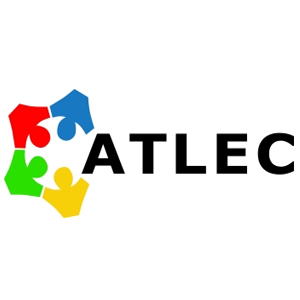
European Programme Assistive Technology Learning Through A Unified Curriculum/ ATLEC, LEONARDO DA VINCI Multilateral Projects for Development of innovation
The project aims to firstly raise awareness of ICT AT through an elaborate curriculum, and secondly to provide adequate learning support to both learners and trainers (for them a handbook will be available in, combination with the curriculum) to ensure the ICT AT needed for each individual is known and well understood using web 2.0 technologies, as well as mobile learning services. Ensuring that thereby the individual needs and concerns are met is a necessity for a successful implementation
ATLEC’s concrete objectives are:
- To create a specific ICT AT curriculum taking into account individual needs/different disabilities;
- To deploy an online learning platform, as well as mobile services that will enrich the learning experience;
- To make the working environment more accessible for PwDs by implementing a novel, contemporary and bench marked learning in ICT AT solutions;
- To prepare the necessary steps for qualifying people with disabilities as ICT AT trainers
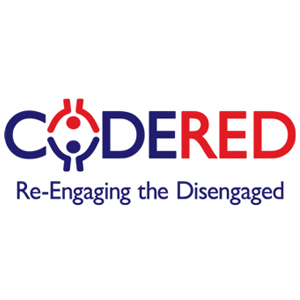
The Europe 2020 strategy identifies drop out from i-VET or early school leaving (ESL) as a key challenge to meeting employment targets. High rates of ESL are detrimental to making lifelong learning a reality and increase the risk of unemployment, poverty and social exclusion. ESL is over-represented among pupils with disabilities (61%), emotional/behavioural problems and migrants.
Code RED is an exciting European project that has been developed in response to these high levels of early school leaving and drop-out and exclusion from education that often lead to unemployment, poverty and social deprivation. The project aims at working with these groups of students who are particularly at risk of exclusion from education or drop out. Therefore, the main aim of the project is to take actions towards addressing the high proportion of drop-out from i-VET (vocational and educational training).
Details of the Code RED project:
Agreement No: UK/13/LLP-LdV/TOI-678

Type: LLP-Leonardo-Transfer of Innovation
Starting date: 01 Oct 2013
Duration: 24 months
Coordinator: Nottingham Trent University, Computing and Technology Team, School of Science & Technology, College of Science, Clifton Campus, Clifton Lane, Nottingham, NG11 8NS
You may find information about the whole consortium here.

The PersonaWeb project is focused upon the implementation and evaluation of a dynamic Web-based framework, called PersonaWeb, for achieving dynamic adaptation and personalization of eServices’ generic content based on human factors. More specifically, given the users’ diversified perceptual preferences, the same service content provided by an organization will be reconstructed and delivered differently based on users’ cognitive typologies and the proposed set of design guidelines (user-centric). This way, we will increase information assimilation, accuracy on cognitive targets’ searching activities and consequently enhance satisfaction and acceptability of the On-line services. The aim of this project is multi-fold: (i) to evaluate the significance of human factors in the generic web structures and more specifically in the area of eServices’ field, (ii) to propose a Web browser enhancement that will extend the well known html model with a new set of RDFa tags [14] based on cognitive semantics, (iii) to propose a new methodology for the dynamic extraction of users’ cognitive perceptual preferences based on their navigation behaviour, and (iv) to propose a set of design guidelines for the automatic reconstruction of Web content based on users’ individual characteristics. In this respect, PersonaWeb will be an easy to use framework enabling any entity, Web designer and/or developer to enhance their Web services (technology and language independent) with adaptive Web objects that will adapt according to users’ dynamically extracted cognitive factors.

The RECALL project is implemented by the Laboratory of New Technologies in Communication, Education & Mass Media (Faculty of Communication and Media Studies, National & Kapodistrian University of Athens), with Professor Michael Meimaris being the Scientific Coordination. The program aims to provide new opportunities for apprentices with disabilities (learning, sensory and physical) teachers, trainers, as well as parents and caregivers. Also, it aims to provide better access to education and employment opportunities, and public services, while users will develop necessary skills for their safety by combining location-based services (location based services – LBS) with training based digital games (game based learning – GBL).
RECALL Project participants:
- NOTTINGHAM TRENT UNIVERSITY – UK
- BID SERVICES – UK
- GREENHAT INTERACTIVE – Great Britain
- University of Athens, Faculty of Communication and Media Studies, Laboratory of New Technologies in Communication, Education & Mass Media – Greece
- MARIE CURIE ASSOCIATION – Bulgaria
- Centre of Professional Training in Culture – Romania
Project website: http://routemate.isrg.org.uk/recall-project
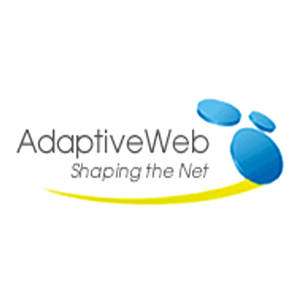
The AdaptiveWeb project of the Operational Programme for Education and Initial Vocational Training (EPEAEK II) was implemented under the action PYTHAGOARAS I during the period 2004-2007 by the Laboratory of New Technologies in Communication, Education & the Mass Media (Faculty of Communication and Mass Media, National & Kapodistrian University of Athens), with Associate Professor C. Mourlas being the Scientific Coordinator. The research goal of this project was to design and implement an open architecture / infrastructure model which enables sending the optimal content through the optimal mode of presentation to the user, and which is based on the communication aspect and user profile (interests, skills, etc.), using particular personal data security policy and available resources (network load, device capabilities)
Project website: http://www3.cs.ucy.ac.cy/adaptiveweb/site/
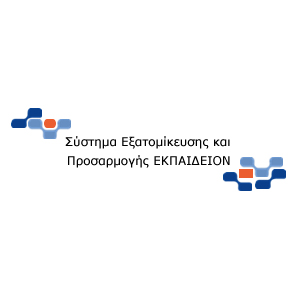
Mr. Mourlas was involved in the proposal submitted by the University of Cyprus, Research Promotion Foundation of Cyprus, with Scientific Coordinator the Professor of Informatics, George Samaras. Mr. Mourlas was the coordinator of the research team at the University of Athens. This program was launched in response to the results conducted by the research of experimental approaches which were implemented in the AdaptiveWeb project. From the AdaptiveWeb project emerged the conclusion that the use of a large parameter range characterizing the individual perceptions and unique cognitive characteristics of the users (such as visual and cognitive processes, learning styles and emotional state), are important elements in the concept of personalization, customization, and development of the user-centered applications, since they present practical application in the information space and may affect the structural characteristics of conventional hypermedia content by adjusting, based on certain rules, towards the perceptual preferences of the users. Therefore, the learning ability of the users is enhanced (as a process), as their cognitive overload is tempered, as well as their effectiveness in search of cognitive goals and their satisfaction when navigating a Web site.
Project website: http://www3.cs.ucy.ac.cy/ekpaideion/Site/index.html
Participation to Other Projects

The European research project «WebTraining Game: The development of an educational e-learning game in Management and Marketing” was held within the Leonardo V program in cooperation with the following universities and research centers in Europe: Groupe ICHEC – ISC St-Louis – ISFSC »(Brussels), Karol Adamiecki University of Economics in Katowice (Poland), Luton Business School, University of Luton (UK), Université de Metz (France), Centre de Recherche Public Henri Tudor (Luxembourg). This program lasted for three years (2004 – 2007). The implementation of online educational game was based on advanced 3-tier architectures by using Java and Databases. Particular emphasis was given to the mathematical model that simulates the market on which the players’ requests are sent for their decisions on strategy and marketing, concerning a virtual company which is created through the game.
The New Technologies Laboratory participated along with the partners:
- Haute École “Groupe ICHEC – ISC Saint-Louis -ISFSC” (Belgium)
- Université Paul Verlaine (Metz) (France), Centre of Applied
Industrial Design (Greece), Centre de Recherche Public Henri Tudor (Luxembourg), Karol - Adamiecki University of Economics (Poland), University of Bedfordshire (M. Britain), in carrying out a research program of two years duration (2004-2006) in order to build an accessible online educational software simulating the characteristics of a financial game, and use of modeling techniques that can further assist in learning subjects related to Business Administration and Marketing.
Project website: http://e-musicbusinessgame.eu/
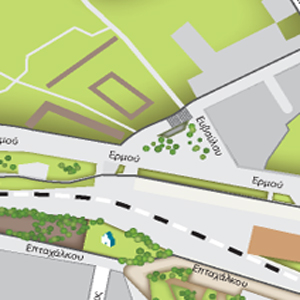
The objective of the project was the development of a multiuser wireless telecommunication system with the possibility of representing users in a graphical interface, using location based technologies. The research project studied an attempt of composing different technologies: wireless mediated communication (two-dimensional and three-dimensional), depiction multiuser interface environments and location based technologies. The expected outcome of the project was the implementation of an integrated and scalable multi-user wireless telecommunication system and content exchange (LOcation-based Communication Urban NETwork: LOCUNET), where mobile participants were identified according to their position in the physical space and represented in real time, in the GUI interface.
The LOCUNET project, with the New Technologies Laboratory being the lead partner of it, aimed to explore new forms of communication that emerge as a result of the convergence of location-based technologies, wireless communication and graphic interface environments, a convergence which led to the emergence of Location Based Communication Media. More specifically, the aim of this research project was to create a theoretical model concerning the use of Location Based Communication Media systems and forms of social interactivity that can support the modern urban environment. This model can assist the design and development process of Location Based Communication Media systems. For the evaluation of the proposed model, a Location Based Communication Media system was designed and implemented, which was used to perform the aforementioned activity with the simultaneous participation of many users moving in the center of Athens. In LOCUNET project, apart from the New Technologies Laboratory, the Department of Informatics and Telecommunications, University of Athens and ANKO company participated as well, while Vodafone company participated in the project in the means of subcontracting.
Project website: http://www2.media.uoa.gr/locunet/?q=hom
